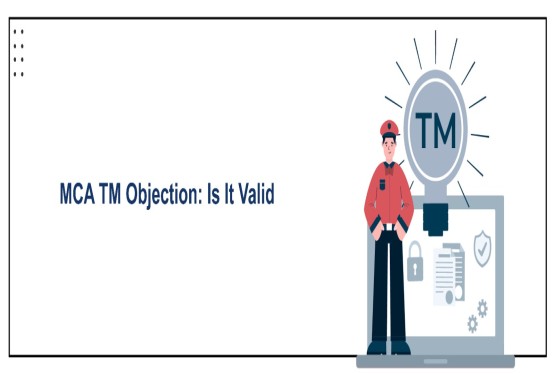Regulatory compliance is not merely an administrative requirement it is an important strategic component of sustainable business growth. Regulatory compliance refers to the adherence of a company to the laws, regulations, standards, and ethical practices governing its operations. Whether it involves paying taxes, following employment laws, maintaining data privacy, or adhering to environmental norms, compliance ensures that the organization functions responsibly, legally, and efficiently.
Regulatory Compliance
Regulatory compliance means that a company must act in accordance with all external legal requirements and internal policies applicable to its industry and location. These laws and regulations vary across sectors and geographical regions but are essential for ensuring lawful, ethical, and safe operations.
Compliance encompasses adherence to labour laws, tax codes, environmental standards, safety regulations, financial reporting standards, and sector-specific requirements. For instance, a financial institution must comply with RBI or SEBI norms, while a healthcare firm must align with clinical data and bioethics standards.
Non-compliance can lead to penalties, license cancellations, lawsuits, and loss of public trust. In contrast, companies that prioritize compliance demonstrate integrity and accountability, gaining a competitive advantage and reinforcing stakeholder trust.
Types of Regulatory Compliance in Business
Regulatory compliance in business covers various domains, each aligned with a specific set of laws and regulations. Understanding the different types of compliance is essential for organizations to operate legally, ethically, and efficiently. Below is an in-depth discussion of the major types of compliance businesses must adhere to:
Tax Compliance
Ensuring Accurate Taxation and Financial Discipline
Tax compliance refers to a company’s obligation to report, file, and pay taxes in accordance with local, state, and national laws. This includes compliance with direct and indirect tax regulations such as Income Tax, Goods and Services Tax (GST), Tax Deducted at Source (TDS), Professional Tax, and Advance Tax. Businesses must maintain accurate records of all financial transactions and file returns within stipulated deadlines. Failure to comply with tax regulations may result in hefty penalties, interest payments, and even prosecution under tax laws.
Proper tax compliance enhances financial transparency and ensures that companies are viewed as law-abiding and responsible entities. Moreover, it allows for better budgeting and financial planning, making the business more attractive to investors and regulatory authorities. It also includes the ambit of Income tax computation .
To know more about GST compliance.
Labor and Employment Compliance
Safeguarding Employee Rights and Workplace Integrity
Labor and employment compliance involves adhering to the multitude of laws and rules that govern employee relations and workplace conduct. This includes compliance with the Minimum Wages Act, Payment of Bonus Act, Factories Act, Factory license registration, Industrial Disputes Act, Equal Remuneration Act, and other labour welfare legislations. Companies must ensure fair hiring practices, equal opportunity employment, workplace safety, timely payment of wages, provision of employee benefits, and implementation of grievance redressal mechanisms.
A compliant workplace promotes fairness, dignity, and security among workers. It also reduces the risk of disputes, strikes, or legal action, and fosters a positive company culture. Non-compliance may lead to lawsuits, government penalties, or damage to the business’s reputation.
Environmental Compliance
Aligning Business Practices with Sustainability Goals
Environmental compliance pertains to a company’s responsibility to minimize its ecological footprint and adhere to laws designed to protect the environment. This includes compliance with environmental legislations such as the Environment Protection Act, Air and Water Pollution Acts, Hazardous Waste Management Rules, and applicable sustainability mandates. Businesses are often required to obtain environmental clearances for operations that impact natural resources, and to regularly monitor waste disposal, emissions, energy use, and recycling processes.
Environmental compliance not only helps in avoiding legal penalties but also strengthens a company’s image as an environmentally responsible entity. Many consumers and investors now prefer companies that align with global sustainability and climate-conscious business practices. Therefore, compliance in this domain is both a legal obligation and a strategic advantage.
Financial and Accounting Compliance
Ensuring Transparency, Governance, and Investor Confidence
Financial and accounting compliance involves maintaining transparency in financial operations and ensuring adherence to prescribed accounting principles and corporate governance standards. This includes compliance with laws such as the Companies Act, 2013, Indian Accounting Standards (Ind-AS), and regulations issued by authorities such as the Ministry of Corporate Affairs (MCA), Securities and Exchange Board of India (SEBI), and Reserve Bank of India (RBI).
Businesses must maintain proper books of accounts, file annual returns, conduct internal and statutory audits, and make disclosures as required under financial regulations. Accurate and compliant financial reporting not only prevents fraud but also builds investor trust, facilitates access to capital, and enhances the organization’s overall credibility.
Data Protection and Privacy Compliance
Protecting Personal Information in the Digital Era
With the rise of digitization, safeguarding data has become a top priority for businesses. Data protection and privacy compliance refers to a company’s obligation to collect, process, store, and use personal data in a lawful and secure manner. In India, the Digital Personal Data Protection Act (DPDP), 2023 sets out obligations regarding the collection and usage of personal data. It mandates that businesses must seek informed consent, limit data usage to the stated purposes, and adopt security measures to prevent unauthorized access or breaches.
Non-compliance with data privacy laws can result in data breaches, legal liabilities, and irreparable harm to a company’s reputation. On the other hand, compliance assures customers and clients that their information is handled responsibly, thereby building trust and brand loyalty.
Health and Safety Compliance
Promoting a Safe and Productive Work Environment
Health and safety compliance ensures that businesses provide a secure and hazard-free working environment for their employees. Compliance in this area is governed by laws such as the Factories Act, 1948 and the Occupational Safety, Health and Working Conditions Code, 2020. Employers are required to identify potential workplace risks, provide protective equipment, conduct regular safety drills, and maintain medical facilities.
By adhering to these laws, businesses not only protect employees from accidents and occupational diseases but also reduce absenteeism and increase productivity. Health and safety compliance also reduces insurance premiums and mitigates the risk of litigation due to workplace injuries.
Sector-Specific Compliance
Meeting Industry-Specific Legal Requirements
Every industry has its own set of regulatory norms based on the nature of its operations and risks involved. Sector-specific compliance refers to the unique obligations that businesses must fulfill depending on the industry in which they operate. For example:
-
Banking and Finance: Must follow RBI FEMA guidelines, anti-money laundering laws, and Know Your Customer (KYC) norms.
-
Insurance Sector: Governed by the Insurance Regulatory and Development Authority of India (IRDAI) regulations, which mentions of insurance company compliance and broker licenses.
-
Telecom Sector: Must comply with Telecom Regulatory Authority of India (TRAI) rules and spectrum licensing conditions.
-
Pharmaceuticals and Healthcare: Must follow laws issued by the Central Drugs Standard Control Organization (CDSCO), Clinical Trials Rules, and ethical standards.
Failure to meet industry-specific compliance requirements can result in revocation of licenses, penalties, loss of accreditation, and loss of consumer confidence. Compliance in such cases is not just about legality, but also about maintaining quality, ethics, and safety in critical service areas.
Why Regulatory Compliance is Important in Business
Avoidance of Legal Penalties and Liabilities
Non-compliance with applicable laws exposes a business to fines, sanctions, lawsuits, and even criminal charges. Regulatory bodies have the power to shut down operations, revoke licenses, or impose severe financial penalties. For example, non-compliance with labor laws may result in court cases and employee unrest, while failure to adhere to environmental norms could trigger sanctions from pollution control boards. Legal disputes also consume time, energy, and financial resources that could be better used for core business functions.
Trust Building with Stakeholders
Legal compliance builds trust among key stakeholders customers, investors, employees, and regulators. Demonstrating that a company adheres to ethical standards reinforces its credibility and integrity. Customers are more likely to engage with businesses that handle their data responsibly, while investors prefer companies with a clean regulatory record.
Strengthening Public Image and Brand Reputation
Compliance enhances brand reputation by projecting a company as law-abiding, socially responsible, and ethical. This can be used as a marketing advantage. For instance, highlighting compliance with labour laws or environmental standards in public communications portrays the business as committed to fair and sustainable practices.
Operational Efficiency and Risk Reduction
A strong compliance framework streamlines business operations by establishing clear policies and procedures. This reduces duplication of work, minimizes errors, and enhances efficiency. Compliance reduces the risks of accidents, fraud, and employee grievances by fostering a safe and professional work culture.
Adaptability and Future Readiness
Regulations often evolve in response to societal needs, technological advancement, or global events. Businesses with compliance systems in place are better equipped to respond to regulatory changes without operational disruptions. Being proactive rather than reactive ensures resilience and continuity.
Impact of Compliance on Workplace and Employees
Creating a Safe and Fair Workplace
Compliance with labour, health, and safety laws protects employee welfare. Ensuring fair wages, working hours, maternity benefits, anti-harassment policies, and occupational safety not only avoids legal risk but also promotes a secure work culture.
Enhancing Employee Morale and Retention
Employees are more likely to remain loyal to organizations that treat them fairly and prioritize their safety. Transparent policies, accessible grievance redressal, and workplace ethics foster job satisfaction, reducing attrition rates.
Promoting Professionalism and Corporate Values
Compliance policies act as ethical guides for employee behaviour. They promote discipline, professionalism, and responsible conduct. This in turn creates an organizational culture aligned with values and long-term vision.
Challenges in Implementing Compliance
While the importance of compliance is undisputed, businesses especially SMEs face several challenges:
-
Resource Constraints: Smaller firms often lack the expertise or finances to implement full-fledged compliance programs.
-
Frequent Regulatory Changes: Staying updated with ever-evolving laws can be overwhelming.
-
Lack of Awareness: Many businesses are unaware of all the laws applicable to them, leading to accidental non-compliance.
-
Operational Complexity: Implementing compliance across departments, locations, and global jurisdictions requires coordination and expertise.
To address these challenges, companies must invest in legal advisory services, internal audits, compliance training, and digital compliance tools.
Benefits of Regulatory Compliance
Legal Protection and Risk Mitigation
Compliance protects the business from lawsuits, financial penalties, and reputational loss. It ensures the company operates within the legal framework, minimizing exposure to external and internal risks.
Improved Business Sustainability
By adhering to ethical, environmental, and financial regulations, businesses lay a solid foundation for long-term growth. Compliance fosters accountability, transparency, and responsible decision-making.
Enhanced Reputation and Public Trust
A clean compliance record enhances the company’s image and attracts customers, investors, and partners. Ethical operations and lawful behaviour serve as proof of the company’s reliability and vision.
Cost Efficiency
While compliance programs require upfront investment, they save long-term costs by avoiding fines, legal battles, and business interruptions. Streamlined operations and preventive measures also boost resource optimization.
Competitive Advantage
Companies with robust compliance frameworks are often preferred in government tenders, international partnerships, and industry collaborations. Compliance also supports certifications such as ISO, which enhance credibility.
Conclusion
In the modern business landscape, regulatory compliance is not optional it is a prerequisite for success. From protecting legal rights to promoting ethical conduct, compliance touches every aspect of a company’s operations. A well-established compliance system not only prevents legal troubles but also creates a positive work environment, builds stakeholder trust, and enhances operational efficiency.
Businesses, regardless of their size or industry, must prioritize compliance through constant vigilance, employee education, and expert support. With ever-evolving regulatory requirements, adopting a proactive compliance strategy is key to resilience, growth, and long-term sustainability. Investing in compliance is investing in the future of the business.
Frequently Asked Questions (FAQ)
Q1. What is the difference between regulatory compliance and statutory compliance?
Ans. While both are related to adherence to rules, regulatory compliance refers to following rules imposed by regulatory authorities (e.g., SEBI, RBI, IRDAI, TRAI), often specific to industries or sectors. Statutory compliance, on the other hand, involves adherence to general laws applicable to all businesses, such as labor laws, income tax laws, and company law. Statutory compliance is broader and more foundational, while regulatory compliance may vary depending on business type or sector.
Q2. How often should compliance audits be conducted in a company?
Ans. Compliance audits should ideally be conducted at least once a year. However, the frequency may vary depending on the industry and risk profile of the business. High-risk sectors such as finance, healthcare, and manufacturing may require quarterly or bi-annual audits. Internal audits, surprise checks, and external compliance reviews can help in early detection of non-compliance and process gaps.
Q3. What are the consequences of unintentional non-compliance?
Ans. Even if non-compliance is unintentional, the law typically does not excuse ignorance. Unintentional non-compliance can still lead to fines, operational restrictions, or license suspension. In some cases, companies may be given a chance to rectify the issue within a prescribed time. However, repeated or systemic negligence can trigger more severe consequences, including blacklisting or criminal proceedings.
Q4. How can startups and small businesses manage compliance without a dedicated legal team?
Ans. Small businesses can manage compliance by:
-
Outsourcing compliance management to professional service providers or consultants
-
Using automated compliance software tools for alerts and tracking
-
Subscribing to regulatory update services
-
Participating in industry association seminars to stay informed
-
Training their finance or HR heads in basic legal requirements
While they may not need an in-house legal department initially, regular guidance from legal advisors is strongly recommended.
Q5. Are digital businesses and e-commerce platforms subject to the same compliance norms?
Ans. Yes, digital and e-commerce businesses are subject to additional layers of compliance. Besides general laws like taxation and labor laws, they must comply with:
-
IT Act, 2000 and DPDP Act, 2023 for data protection
-
Consumer Protection (E-commerce) Rules, 2020
-
Guidelines from CERT-In regarding cybersecurity
-
Sector-specific GST and TDS rules applicable to online transactions
Platforms also need to maintain grievance redressal mechanisms and appoint a compliance officer under certain thresholds.
Q6. How does international expansion affect regulatory compliance?
Ans. When a business expands internationally, it becomes subject to foreign compliance regimes, such as:
-
GDPR for data protection in the EU
-
FCPA (Foreign Corrupt Practices Act) for anti-bribery compliance in the US
-
Country-specific import/export laws, employment regulations, and taxation systems
Companies operating across borders must often maintain separate compliance teams or hire local legal counsel to ensure alignment with local laws.
Q7. What is ESG compliance, and is it part of regulatory compliance?
Ans. ESG (Environmental, Social, and Governance) compliance refers to aligning business operations with broader sustainability and ethical goals. While some aspects of ESG are still voluntary, many are increasingly being integrated into regulatory frameworks. For instance:
-
SEBI mandates ESG disclosures for listed companies under the Business Responsibility and Sustainability Reporting (BRSR) framework.
-
Environmental law compliance falls under the “E” pillar.
-
Labor law and diversity requirements contribute to the “S” and “G” pillars.
Thus, ESG is emerging as a critical part of regulatory compliance, especially for investor-backed or listed entities.
Q8. Can compliance be used as a competitive advantage?
Ans. Absolutely. Companies that proactively demonstrate compliance:
-
Attract more investors and clients
-
Gain easier access to credit and funding
-
Become eligible for government contracts or incentives
-
Enjoy better brand reputation and customer trust
In fact, in certain sectors like fintech, healthcare, and education, compliance is now considered a differentiator rather than just an obligation.
Q9. What role do compliance officers play in an organization?
Ans. A compliance officer is responsible for:
-
Interpreting laws and regulations applicable to the business
-
Developing and updating internal compliance frameworks
-
Conducting training sessions for employees
-
Liaising with regulators and auditors
-
Monitoring compliance practices and initiating corrective measures
In larger organizations, this role is often complemented by a compliance committee or department.
Q10. Is it necessary to document compliance efforts?
Ans. Yes, proper documentation is crucial in demonstrating good faith, due diligence, and accountability. It helps during:
-
Regulatory audits and inspections
-
Litigation or penalty disputes
-
Internal performance reviews
-
ISO or other certification processes
Maintaining written records of compliance actions, training sessions, checklists, audit reports, and correspondences can serve as evidence of intent and effort.











































































_crop10_thumb.jpg)


































































_crop10_thumb.jpg)
_crop10_thumb.jpg)



_crop10_thumb.jpg)


_crop10_thumb.jpg)





_crop10_thumb.jpg)

_crop10_thumb.jpg)














-suratgujarat-section-158_crop10_thumb.jpg)
-suratgujarat_crop10_thumb.jpg)
-(33)_crop10_thumb.jpg)



-ahmedabad_crop10_thumb.jpg)
-learn_crop10_thumb.jpg)

-learnn_crop10_thumb.jpg)



























































_crop10_thumb.jpg)























_Guidelines_learn_crop10_thumb.jpg)























_learn_crop10_thumb.jpg)
_crop10_thumb.jpeg)










_crop10_thumb.jpg)




_Second_Amendment_Rules,_2025_learn_crop10_thumb.jpg)







_learn_crop10_thumb.jpg)











































_learn_crop10_thumb.jpeg)























_learn_crop10_thumb.jpg)



_rd_roc_learn_crop10_thumb.jpg)
















_learn_crop10_thumb.jpg)














_learn_crop10_thumb.jpg)
_Learn_crop10_thumb.jpg)











































_learn_crop10_thumb.jpg)




_learn_crop10_thumb.jpg)













_crop10_thumb.jpeg)




















